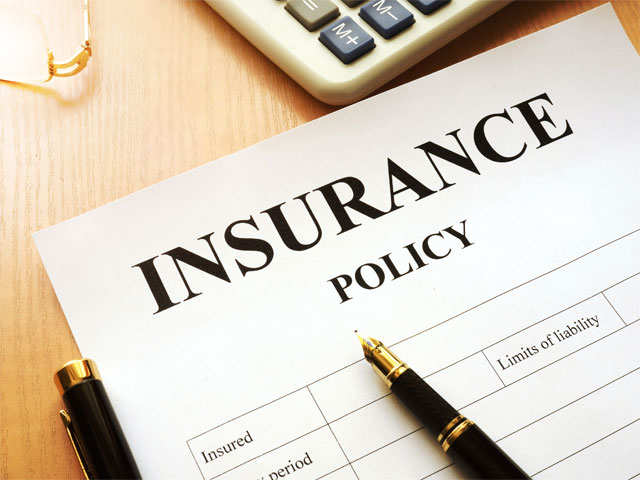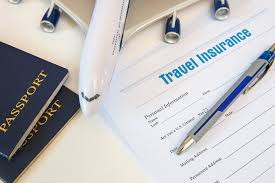The Role of Insurance Sellers: How They Help You Choose the Right Coverage

Insurance is an essential part of modern life, offering protection against unexpected events and financial risks. However, the world of insurance can be complex, with various types of policies, coverage options, and providers to choose from. This is where insurance sellers, also known as insurance agents or brokers, come in.
In this blog, we will explore what an insurance seller does, the different types of insurance sellers, and why their services are valuable when it comes to choosing the right insurance coverage for your needs.
What is an Insurance Seller?
An insurance seller is a professional who assists individuals and businesses in purchasing insurance policies. They help clients identify their insurance needs, find the best policies for their circumstances, and navigate the complexities of coverage options. Insurance sellers can work for a specific insurance company (agents) or act independently, representing multiple insurers (brokers).
Their primary job is to help clients understand the insurance market, compare policies, and make informed decisions. They may also assist with claims processing and act as intermediaries between the client and the insurer in the event of a claim.
Types of Insurance Sellers
There are two main types of insurance sellers: insurance agents and insurance brokers. While both serve similar functions, there are key differences in how they operate and the services they offer.
1. Insurance Agents
An insurance agent works for a specific insurance company or a small group of companies. They sell policies offered by their employer and act as a representative of that insurer. There are two types of insurance agents:
- Captive Agents: These agents work exclusively for one insurance company. They sell only that company’s products and are often highly trained on the specifics of those policies. Captive agents can offer expertise on a single provider but may have fewer options when it comes to price and coverage variety.
- Independent Agents: Independent agents, also known as brokers in some cases, have contracts with multiple insurance companies and can offer a wider range of policies. They are not tied to any single insurer and can provide more flexibility in terms of pricing and coverage options, tailoring their recommendations to the specific needs of the client.
2. Insurance Brokers
An insurance broker acts as an intermediary between clients and multiple insurance companies. Unlike agents, brokers work independently and represent the client, not the insurer. Brokers are particularly helpful when dealing with complex or high-value insurance policies, as they can compare a broader range of options to find the best match for their clients’ needs.
Brokers typically charge a fee or earn a commission from the insurers they place business with, but their loyalty is to the client. This independence often makes them an attractive choice for consumers who want an unbiased perspective when navigating the insurance market.
What Does an Insurance Seller Do?
The role of an insurance seller involves more than just selling a policy. Here’s an overview of the key tasks they perform:
1. Assessing Your Insurance Needs
Insurance sellers begin by understanding the needs and risks of their clients. Whether it’s health, life, auto, or home insurance, they conduct a thorough assessment to determine the coverage you require. For example, an auto insurance seller will inquire about your car, driving habits, and budget to recommend the best coverage options.
2. Explaining Different Insurance Policies
Insurance can be complex, and there are many different types of policies with various terms and conditions. An insurance seller will explain the different options available, including the scope of coverage, exclusions, premiums, and deductibles. They help demystify jargon and make sure you understand the terms of the policy.
3. Comparing Policies
One of the most valuable services an insurance seller offers is comparing policies. Whether they are captive agents or brokers, insurance sellers will typically provide quotes from multiple insurers and help you compare pricing, coverage limits, deductibles, and other key factors. This comparison ensures that you get the best deal for your specific needs and budget.
4. Providing Expert Advice
Insurance policies can vary greatly depending on the type of insurance and the provider. Insurance sellers are trained to give advice and recommendations based on their experience and knowledge of the market. They can help you weigh the pros and cons of different policies and determine which one aligns best with your personal or business goals.
5. Assisting with Claims
In the unfortunate event that you need to file a claim, an insurance seller can act as a valuable advocate. They help you understand the claims process, assist with paperwork, and ensure that you’re getting the appropriate compensation based on the terms of your policy. Their knowledge of the claims process can expedite resolution and minimize stress.
Why You Should Work with an Insurance Seller
Working with an insurance seller provides several benefits, especially if you’re new to the world of insurance or are looking to expand or update your coverage. Here are a few reasons why it’s beneficial to engage with an insurance professional:
1. Expert Knowledge
Insurance policies can be overwhelming, especially when you’re dealing with technical terms, exclusions, and varying coverage options. Insurance sellers are experts in the field, and they can break down complex information to help you make an informed decision. They understand the nuances of the insurance market and can guide you to the best options.
2. Personalized Service
Unlike online insurance marketplaces, insurance sellers provide a more personalized experience. They take the time to understand your unique needs and preferences and recommend policies that best fit your situation. Whether you need a tailored business insurance plan or a life insurance policy for your family, an insurance seller can customize recommendations.
3. Access to a Range of Options
Whether you’re working with a broker or an independent agent, an insurance seller can provide access to a variety of policies and companies. With an independent agent or broker, you may have access to a wider selection of insurers and the ability to shop around for the best coverage at the most competitive prices.
4. Ongoing Support
An insurance policy isn’t something you buy and forget about. Life changes, and your coverage needs may evolve. Insurance sellers offer ongoing support and are available to help you update or modify your policy as your circumstances change. They’re there to guide you through policy renewals and assist with any questions you might have.
5. Claims Assistance
When you need to file a claim, it can be a stressful and confusing process. Insurance sellers can offer support during this time, ensuring that you follow the right steps and maximize your benefits. They can help clarify the claims process and make sure that your claim is processed smoothly.
How to Choose the Right Insurance Seller
Choosing the right insurance seller is essential to ensure that you’re getting the best advice and coverage. Here are a few tips to help you find a reliable insurance seller:
- Do Your Research: Look for insurance agents or brokers with experience in the specific type of coverage you need. Check reviews and testimonials from previous clients to gauge their reputation.
- Ask for Multiple Quotes: Don’t settle for the first offer you receive. Work with a seller who is willing to present quotes from different insurers, especially if you’re working with an independent agent or broker.
- Check Credentials: Make sure the seller is licensed and regulated by your state or country. This ensures that they meet industry standards and are authorized to sell insurance.
- Evaluate Customer Service: Choose an insurance seller who provides excellent customer service, is responsive to your questions, and explains terms clearly.
- Look for Specialization: If you have specific needs, such as life insurance or commercial coverage, consider working with an insurance seller who specializes in that area.
Conclusion
Insurance sellers play a crucial role in helping you navigate the world of insurance, offering expertise and personalized advice that can make all the difference in selecting the right policy. Whether you’re seeking auto, health, home, or life insurance, working with a knowledgeable insurance seller ensures that you get the best protection for your needs and budget.
By doing your research, comparing options, and choosing a trusted professional, you can feel confident that you’re making an informed decision and securing the right coverage for your future.






